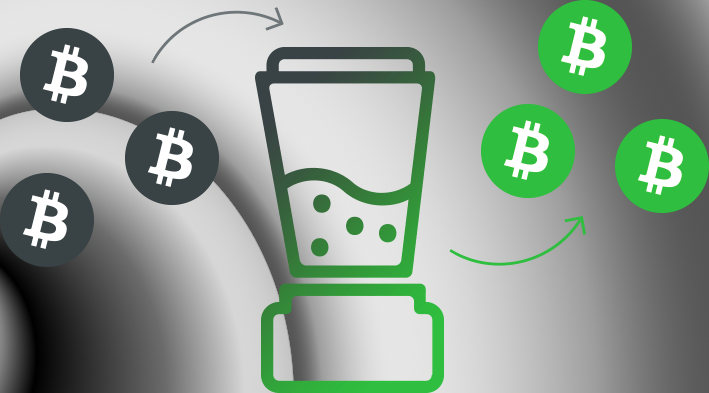It seems that we indeed have reached a new level for bitcoin. Even though the markets have tried to test downwards breaking points for bitcoin, the king of cryptocurrencies has managed to break the negative expectations and return to a path of growth. Some claim that this is just calm before the storm, since in many ways the market patterns mirror those before the bull run of 2017.
At least some things might give credibility for that claim. For an example the Bitcoin’s hashing power has been growing. This means that the miners believe bitcoin is currently at lower levels than it should be – and soon could be. The miners are speculators and the hashing power tracks the price of bitcoin.
In other news a new index which is intended to give more accurate statistics on cryptotrading, some security news and a new game based on both blockchain and Formula 1: this could be fun!

A New Index to Weed-Out Fake Volumes
Cryptoanalytics firm Messari has released a new top 10 of cryptocurrency exchanges. This new “Real 10 Volumes” index is meant to catalogue the biggest exchanges by their actual trading volume instead of their reported trading volume.
During the last few weeks several institutions have reported that majority of all trade in unregulated exchanges is either fake or non-economic wash trading. According to report by Bitwise Asset Management as much as 95% of all trading on these exchanges is fake. Another report by The Tie told that about 87% of the analyzed trading volume by certain exchanges was potentially suspicious.
The new index aims to give a better picture of actual cryptotrading by cutting these unregulated and suspicious exchanges entirely from their list. The index lists only exchanges that have showed “significant and legitimate trading volumes”.

Bitcoin’s Hash Rate is Going High
Bitcoin network’s hash rate, the number of calculations per second, reached its 4-month peak in Tuesday March 19th. The mining power of the network has seen steady rise since the last year, when many miners dropped out of Bitcoin mining to concentrate on other cryptocurrencies.
Currently Bitcoin network processes about 52 quintillion hashes per second. This makes Bitcoin the most powerful system of decentralized calculation by far. The mining both benefits the Bitcoin ecosystem by making it more durable and resistant, but it can also be seen as a sign of faith in the economy.
“Hashrate follows price. Some folks believe price follows hashrate. Possibly because hashrate doesn’t simply track spot price, but rather tracks some speculative, future price. Miners are speculators too,” commented Casa’s CTO Jameson Lopp.

The Demand for Blockchain Expertise is Rising
According to a new report by a global research and advisory firm, Aite Group, the expertise concerning blockchain and Bitcoin technologies in insurance industry has seen an immense rise during the past two years. Aite Group researched LinkedIn profiles of people working on insurance and found out that blockchain knowledge had surged.
People with knowledge of both Bitcoin and insurance rose from 102 in April 2017 to 5,418 in January 2019. Expertise on blockchain saw even a more dramatic rise, as the amount of people who had expertise on both blockchain and insurance went from just 96 to 29,335.
Even though the knowledge on blockchain and Bitcoin has exploded, it is still not enough to meet the growing demand for such expertise, the report claims. More and more firms are in need for experts who understand blockchain and cryptocurrencies.
“The interest in this technology has created an extreme need for more experts who can help the insurance industry develop solutions using blockchain,” tells the report.

North Korean Hacker Group Still Active
A recent study by cybersecurity company Kaspersky Labs shows that the hacking group Lazarus, is still active and developing new tactic. The hacker group is allegedly sponsored by the government of North Korea, though concrete evidence for the claim is hard to find.
According to Kaspersky Labs’ report, the hacking group has developed their own PowerShell scripts that can interact with malicious servers and execute commands from their operator. These scripts disguise themselves as normal WordPress files or files for other open source projects.
“If you’re part of the booming cryptocurrency or technological startup industry, exercise extra caution when dealing with new third parties or installing software on your systems. Never ‘Enable Content’ (macro scripting) in Microsoft Office documents received from new or untrusted sources,” the report reads.
Lazarus has been estimated to be responsible for about $571 million worth of hacks conducted between 2017 and 2018. This is almost 65% of all cryptothieveries that occurred during the years.

Mixing Services Might Be Vulnerable
A researcher on Ruhr-Universität Bochum college, Felix Maduakor, has claimed to have found vulnerabilities in algorithms used by common Bitcoin mixing services. According to a study carried out by Maduakor, the algorithms used by centralized mixing services are inefficient in comparison to decentralized mixing services or more privacy-minded cryptocurrencies, such as Monero or Zcash.
Bitcoin mixers are services where a customer sends some amount of bitcoin to the service, after which the services provides the customer with a completely different set of bitcoins. In theory this can make the analysis and tracking of bitcoin transactions more difficult.
Maduakor’s study shows that the major mixing services contained a plethora of trivial bugs, which could result in information leakages and other problems, which attackers could exploit to deanonymize past transactions by the mixing services. Maduakor also claims that even if these bugs were fixed, every transaction made prior the fixes would be “irreversibly vulnerable”.
It is uncertain if some institutions or attackers are using the bugs found by Maduakor, but the users of mixing services should still take heed on these new findings.

New Official F1 Game Will Utilize Blockchain
A blockchain startup Animoca Brands has announced that it has signed a major global licencing agreement with Formula 1. The agreement aims to publish a racing game based on Formula 1, which would utilize blockchain.
The new game, F1 Delta Time, would use blockchain to give players the possibility to earn and actually own items, badges or other goods in game. The creators behind the game are also hinting that the blockchain-aspects could be utilized in racing sections of the game.
The potential for blockchain and cryptocurrencies in the gaming sphere are huge. With blockchain one could keep automatic, unalterable charts of the best drivers, or even decentralized competitions where one could win actual money or at least tokens worth of money. Blockchain can also be used for trading within game.
Formula 1 has about 1,6 billion viewers across the globe. If the game gets a good reception from gamers, it could be a massive step for blockchain adaptation in gaming.


